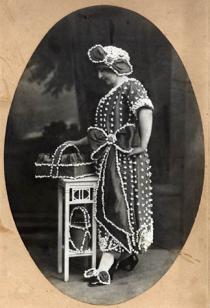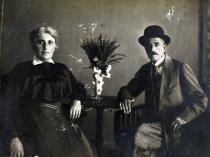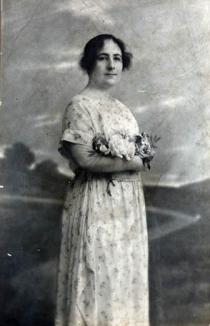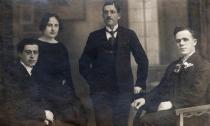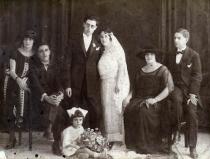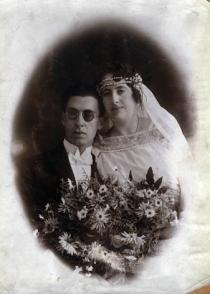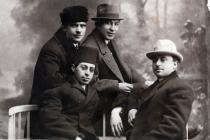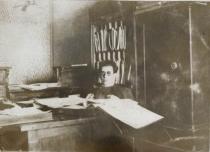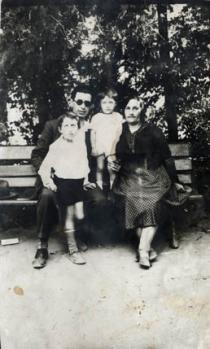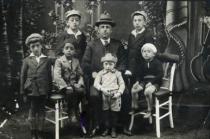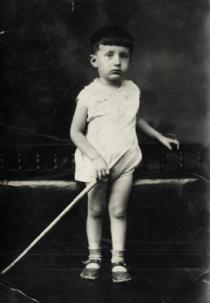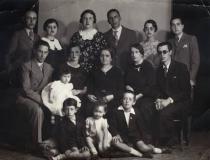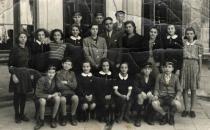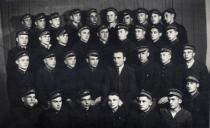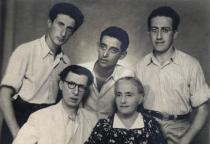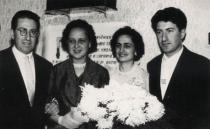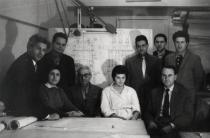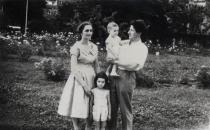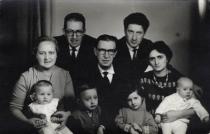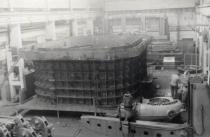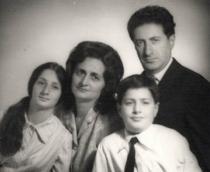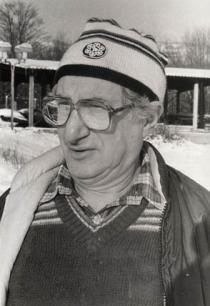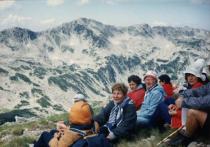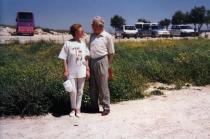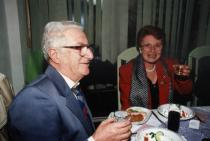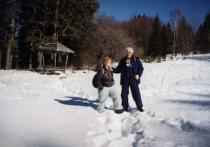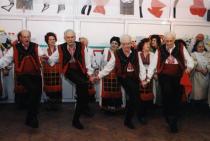On this photo from left to right on the upper row are: I, Avram Pinkas and Mois Merkado Natan. Below are: my father, Merkado Mois Natan and my mother, Rebeka Avram Natan (nee Geron). The picture was taken in Ruse in 1949.
When we finished high school we went on a brigade to build the Hainboaz pass - this is one of the national construction sites, in which the socialist youth contributed to the construction of the road - digging, etc. In the evenings we gathered around the camping fire and sang songs. We slept in tents. In 1947 I started studying in the Higher Technical School in Ruse. At first I did not want to go to university, because my brother was already studying and my father had a small salary - he was an accountant in the commissariat. Then he became chief accountant in the company 'Clothes and Shoes'. I wanted to become a worker, because I shared those ideas and wanted to help the family. But one day my father and brother persuaded me that the country needed not only workers, but also engineers. So, the convinced me to continue my education. I spent two years in Ruse. Then the Higher Technical School was closed and I was transferred to Sofia where I graduated the Higher Machine Electrical and Technical Institute in 1952.
I started working as an engineer at the construction site of the present-day Danube Bridge, which was then called the Bridge of Friendship. I was the technical leader of the assembly brigades. My mother was seriously sick and my father was deep into debt in order to support our studies. I had to work one year to pay the debts. My father was also working, but it was impossible to support two students and our very sick mother with only one salary. So, he had taken loans from friends, he had not paid the rent, and because they knew him, they did not evict him. I started work and gradually I started paying the debts back. Then I transferred to Sofia in a military design organization - we designed hiding places, I designed the ventilation and other installations. I also did my military service there - that was in the summer of 1954 when we finished the bridge and I was conscripted to Boychinovtsi station [Montana district] where I spent two months. Then I went to the design organization. It was housed in the Jewish Home in Sofia. I worked there a year and a half. I did not stay any longer because I did not like all the secrecy. Then I worked a year and a half in 'Mashproekt' and then in 'Himmetalurgproekt' [design institutions in machine construction, chemistry and metallurgy, designing plants in these sectors].
Meanwhile, many Jews started emigrating to Israel. All my uncles and aunts left. Only we remained together with a cousin - Avram Pinkas. My father's brothers also left and so did their mother Sultana. My other grandmother Rebeka died in Bulgaria. Her son Yosif Geron died here too. Our ideas and education were different. We felt good here, we had jobs. We said nothing to those who left - there were even members of the Bulgarian Communist Party who emigrated. There were political prisoners and a former partisan from Ruse who left. When their families decided to leave, they left with them. That was not a question of ideology or understanding. After the tortures and the sacrifices, which the Jews experienced during World War II, the people thought, 'Let's go to our own country.' That was the main reason why they left.

